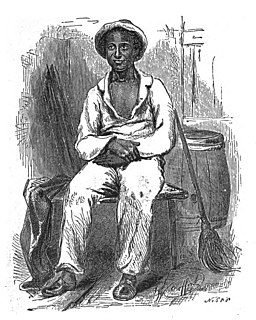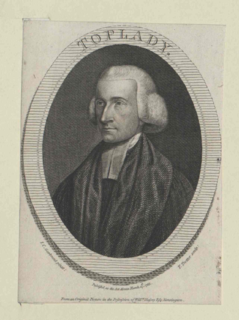A Quote by Aeschylus
The man who boldly transgresses, amassing a great heap unjustly--by force, in time, he will strike his sail, when trouble seizes him as the yardarm is splintered. He calls on those who hear nothing and he struggles in the midst of the whirling waters. The god laughs at the hot-headed man, seeing him, who boasted that this would never happen, exhausted by distress without remedy and unable to surmount the cresting wave. He wrecks the happiness of his earlier life on the reef of Justice, and he perishes unwept, unseen.
Related Quotes
At such times, the heart of man turns instictively towards his Maker. In prosperity, and whenever there is nothing to injure or make him afraid, he remembers Him not, and is ready to defy Him; but place him in the midst of dangers, cut him off from human aid, let the grave open before him, then it is, in the time of his tribulation, that the scoffer and unbelieving man turns to God for help, feeling there is no other hope, or refuge, or safety, save in his protecting arm.
Let a man choose what condition he will, and let him accumulate around him all the goods and gratifications seemingly calculated to make him happy in it; if that man is left at any time without occupation or amusement, and reflects on what he is, the meagre, languid felicity of his present lot will not bear him up. He will turn necessarily to gloomy anticipations of the future; and unless his occupation calls him out of himself, he is inevitably wretched.
Why prove to a man he is wrong? Is that going to make him like you? Why not let him save face? He didn't ask for your opinion. He didn't want it. Why argue with him? You can't win an argument, because if you lose, you lose it; and if you win it, you lose it. Why? You will feel fine. But what about him? You have made him feel inferior, you hurt his pride, insult his intelligence, his judgment, and his self-respect, and he'll resent your triumph. That will make him strike back, but it will never make him want to change his mind. A man convinced against his will is of the same opinion still.
My God, whose son, as on this night, took on Him the form of man, and for man vouchsafed to suffer and bleed, controls thy hand, and without His behest, thou canst not strike a stroke. My God is sinless, eternal, all-wise, and in Him is my trust, and though stripped and crushed by thee, -though naked, desolate, void of resource- I do not despair:where the lance of Guthrum now wet with my blood, I should not despair. I watch, I toil, I hope, I pray: Jehovah, in His own time, will aid.
There was once a Bald Man who sat down after work on a hot summer's day. A Fly came up and kept buzzing about his bald pate, and stinging him from time to time. The Man aimed a blow at his little enemy, but — whack — his palm came on his head instead; again the Fly tormented him, but this time the Man was wiser and said: YOU WILL ONLY INJURE YOURSELF IF YOU TAKE NOTICE OF DISPICABLE ENEMIES.
A man who was merely a man and said the sort of things Jesus said would not be a great moral teacher. He would either be a lunatic - on a level with the man who says he is a poached egg - or else he would be the Devil of Hell. You must make your choice. Either this man was, and is, the Son of God; or else a madman or something worse. You can shut him up for a fool; you can spit at him and kill him as a demon; or you can fall at his feet and call him Lord and God. But let us not come with any patronizing nonsense about his being a great human teacher. He has not left that open to us.
Our passions are the chief means of self-preservation; to try to destroy them is therefore as absurd as it is useless; this would be to overcome nature, to reshape God's handiwork. If God bade man annihilate the passions he has given him, God would bid him be and not be; He would contradict himself. He has never given such a foolish commandment, there is nothing like it written on the heart of man, and what God will have a man do, He does not leave to the words of another man. He speaks Himself; His words are written in the secret heart.
God, Who is by nature good and dispassionate, loves all men equally as His handiwork. But He glorifies the virtuous man because in his will he is united to God. At the same time, in His goodness he is merciful to the sinner and by chastising him in this life brings him back to the path of virtue. Similarly, a man of good and dispassionate judgment also loves all men equally. He loves the virtuous man because of his nature and the probity of his intention; and he loves the sinner, too, because of his nature and because in his compassion he pities him for foolishly stumbling in darkness.
A man follows the path laid out for him. He does his duty to God and his King. He does what he must do, not what pleases him. God's truth, boy, what kind of world would this be if every man did what pleased him alone? Who would plough the fields and reap the harvest, if every man had the right to say, 'I don't want to do that.' In this world there is a place for every man, but every man must know his place.
For a young man, sleep is a sure solvent of distress. There whirls not for him in the night any so hideous phantasmagoria as will not become, in the clarity of the next morning, a spruce procession for him to lead. Brief the vague horror of his awakening; memory sweeps back to him, and he sees nothing dreadful after all. "Why not?" is the sun's bright message to him, and "Why not indeed?" his answer.
The man at the top of the intellectual pyramid contributes the most to all those below him, but gets nothing except his material payment, receiving no intellectual bonus from others to add to the value of his time. The man at the bottom who, left to himself, would starve in his hopeless ineptitude, contributes nothing to those above him, but receives the bonus of all of their brains. Such is the nature of the 'competition' between the strong and the weak of the intellect. Such is the pattern of 'exploitation' for which you have damned the strong.
Step back in time; look closely at the child in the very arms of his mother; see the external world reflected for the first time in the yet unclear mirror of his understanding; study the first examples which strike his eyes; listen to the first words which arouse within him the slumbering power of thought; watch the first struggles which he has to undergo; only then will you comprehend the source of his prejudices, the habits, and the passions which are to rule his life. The entire man, so to speak, comes fully formed in the wrappings of his cradle.






































